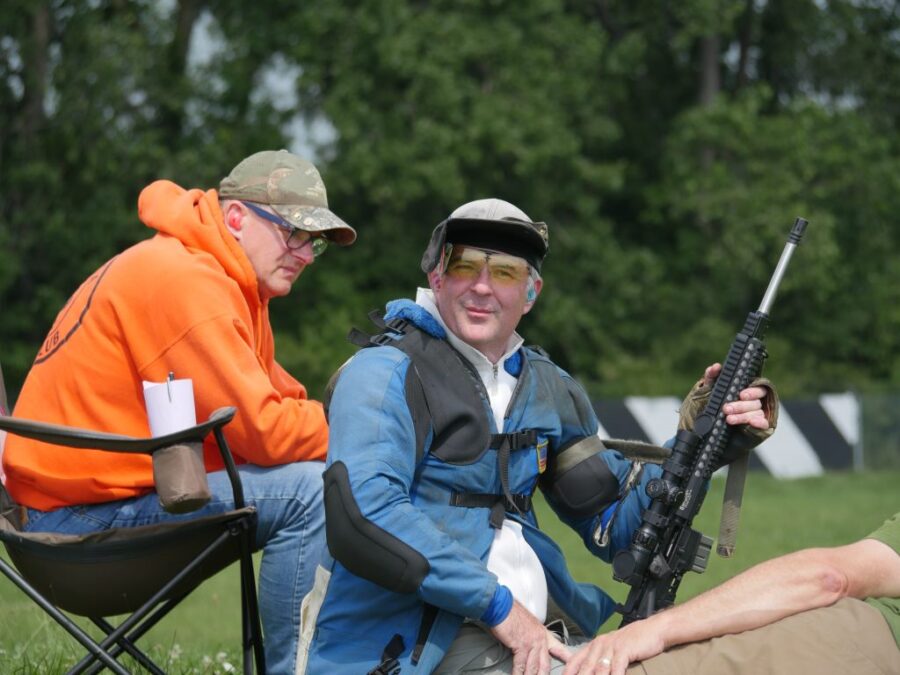From Teaching To Owning A Range
Belle McCormack didn’t start out wanting to own a shooting range. But when a series of events propelled her into firearms instruction, and then opportunity opened a door in front of her, she didn’t hesitate to step through it. Today she owns and manages The Firearms Academy of Seattle in Onalaska, Wash.
McCormack had a passing relationship with firearms as a child, but — in her words — it certainly wasn’t extensive. More important to McCormack’s development as a firearms instructor is she’s a domestic violence survivor.
“My entry into the industry is really similar to the majority of women who pursue self-defense,” she said. “I was just looking for a way to get the confidence and the competence to make the decisions and exercise the skills I might need to use to save my life.”
This is what led McCormack into formal training.
“From there, I figured out all the things I was doing wrong with concealed carry, and I made all the dumb mistakes everybody else did,” she noted. “Once I started getting really deep into it, my mom said I was really paranoid, but it was making me feel so much better and I wanted to keep doing it. This was when I realized I could do what I’d already done with every other job I’d had in my adult life — which involved teaching or training.”
Purchasing The Academy
McCormack has worked in some sort of education for more than 20 years.
“I’ve been a doula, a retail training manager and a drama teacher,” she shared. “I’ve always done teaching or training of some type.”
For a couple of years, McCormack was the volunteer range master at the Jefferson County Sportsmen’s Association in Port Townsend, Wash. At the same time, she sometimes helped out at Arms Pro, also in Port Townsend. Then in 2016, McCormack began teaching some classes at The Firearms Academy of Seattle, where she was an apprentice instructor and later an instructor. After a year, she moved to a full-time position as operations manager.
“By the third year, Marty [Hayes] — the owner — wanted to retire and I was starting to run a lot of stuff,” she recalled. “As soon as I came on full-time as one of the lead instructors, Marty started to filter his way out. I was pretty much handling the day-to-day operation of the entire business.”
Hayes stepped back by “unofficially” retiring at the end of 2019. By 2021, McCormack and Hayes had come to an agreement about how she would take over and purchase the business, but it took another year for attorneys to formalize the purchase.
“The end result, when I actually became the owner, was very anti-climactic,” McCormack stated. “Marty and I both felt, ‘Well, we did this a year ago when we shook hands.’”
A Counter Philosophy
McCormack talks tough about women-only training for self-defense. Her philosophy on training runs counter to what many women instructors promote in their classes.
“I know this is going to be an unpopular opinion, but in general, I think women-only training is a detriment to women because it breeds a false confidence,” she said. “It also keeps them at a kindergarten level. There’s no advanced women-only training available. And if you break it down, the majority of women who get into firearms for self-defense are in it because either something has already happened to them, or it’s happened close enough to them they know it’s a reality.”
A woman is not likely to be attacked by another woman, McCormack pointed out, so they need to train in an environment where they are learning the same skills at the same level as men.
Another point McCormack made comes from her own experience during the healing process: If a woman is not attached to her victimhood — but is instead focused on getting back to some semblance of normal for herself — she needs to go where good men are to know what good men look like.
“When you talk about the caliber of people you run into in this industry, where is there a better opportunity for women to take the same class as everybody else?” she asked. “Women shouldn’t start out handicapped, which is what I have seen a lot of the time with women-only classes.”
A Focus On Thinking
McCormack said The Firearms Academy of Seattle is much more than just her: it’s run by a whole team of instructors who bring many skills to the table.
“I’m not a lead instructor here,” she acknowledged. “I have a team who supports me. My place couldn’t do what it does without everybody — it’s my team.”
The goal of the team, according to McCormack, is not to teach people how to shoot.
“We teach people how to think and make decisions with guns in their hands,” she asserted. “Our focus is the legalities and the violence dynamics and the thought process; it’s not bullets on paper. That’s my passion about it; we have to learn to think better.”
What McCormack teaches is essentially egoless survival skills.
“The majority of women who get into firearms for self-defense are in it because either something has already happened to them, or it’s happened close enough to them they know it’s a reality.”
Belle McCormack, Owner & Manager, The Firearms Academy of Seattle, Onalaska, Wash.
“Ego has no place in survival,” she stated. “Violence dynamics are a huge part of it. The gun is just one tool in the overall survival plan.”
McCormack offers a wide variety of courses for civilians, military and law enforcement.
“We run pistol, rifle and shotgun from beginner to intermediate and advanced classes,” she informed. “In the advanced classes, we do scenario training, force-on-force and decision-making drills. We have a long-distance rifle range and a low-light shoot house.”
Aside from self-defense training, the Academy runs monthly IDPA matches from February through October and has classes for competitive shooters.
The Academy covers 40 acres and houses 14 different ranges, including the low-light shoot house, a 360-degree shoot house and a 600-yard rifle range.
One relationship McCormack is particularly proud of is the one with a local school.
“Over the past couple of years, our local high school has visited a few times each year for a handgun safety class with us,” she shared. “The shop teacher did most of the work; I was just the person who could accommodate them. They do a full introduction to handguns class, with safety, legal lecture and 50 rounds of live-fire. Since it’s basically unheard of these days, I’m amazed and thankful they get to come.”
Right Place At The Right Time
When it comes to buying and taking over a range, McCormack recognizes she happened to be in the right place at the right time, working the hardest, with the right level of motivation.
“Everything I’ve managed to do has been because of tremendous amounts of help from a lot of really amazing people I’ve been lucky enough to run into,” she shared. “This industry is full of people like that. The nature of what we do leads to a certain set of moral codes that cross cultural boundaries and bring us all together.”
As far as the future is concerned, McCormack doesn’t have any big plans to change anything at the range.
“One of the main things I teach my students is to not let ego get involved in your decision-making process,” she affirmed.
“I think this applies to more than just self-defense. I’m looking to be sustainable more than I am ‘successful.’”
In short, McCormack’s following the “if it ain’t broke, don’t fix it approach” — while staying nimble.
“While there have been changes in the curriculum, the structure of the Academy was bestowed upon me. It’s a 30-year-old business with an awesome reputation; I got really lucky,” she said. “All I have to do is keep it running and doing what it’s been doing all along and continue to evolve to please our customers and our students, and to be on the edge of what’s relevant and valid in training.”





